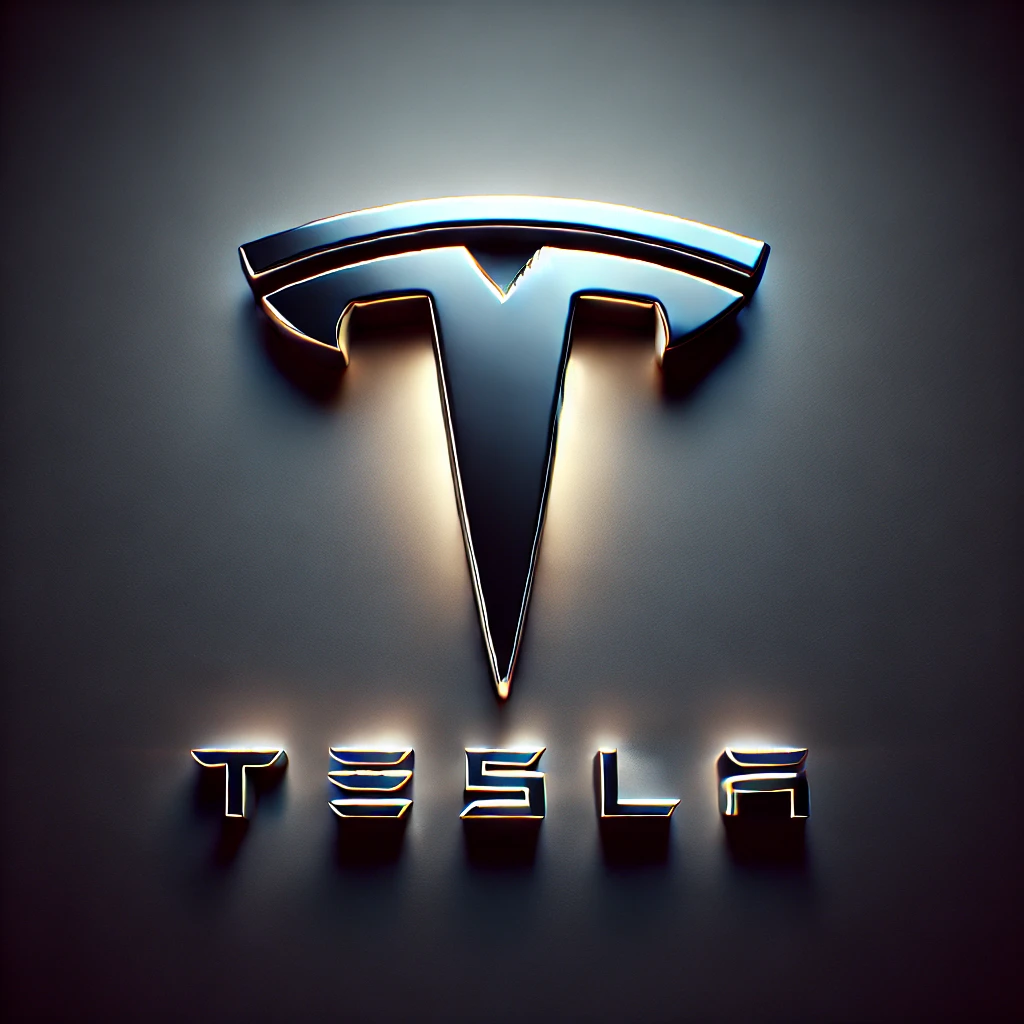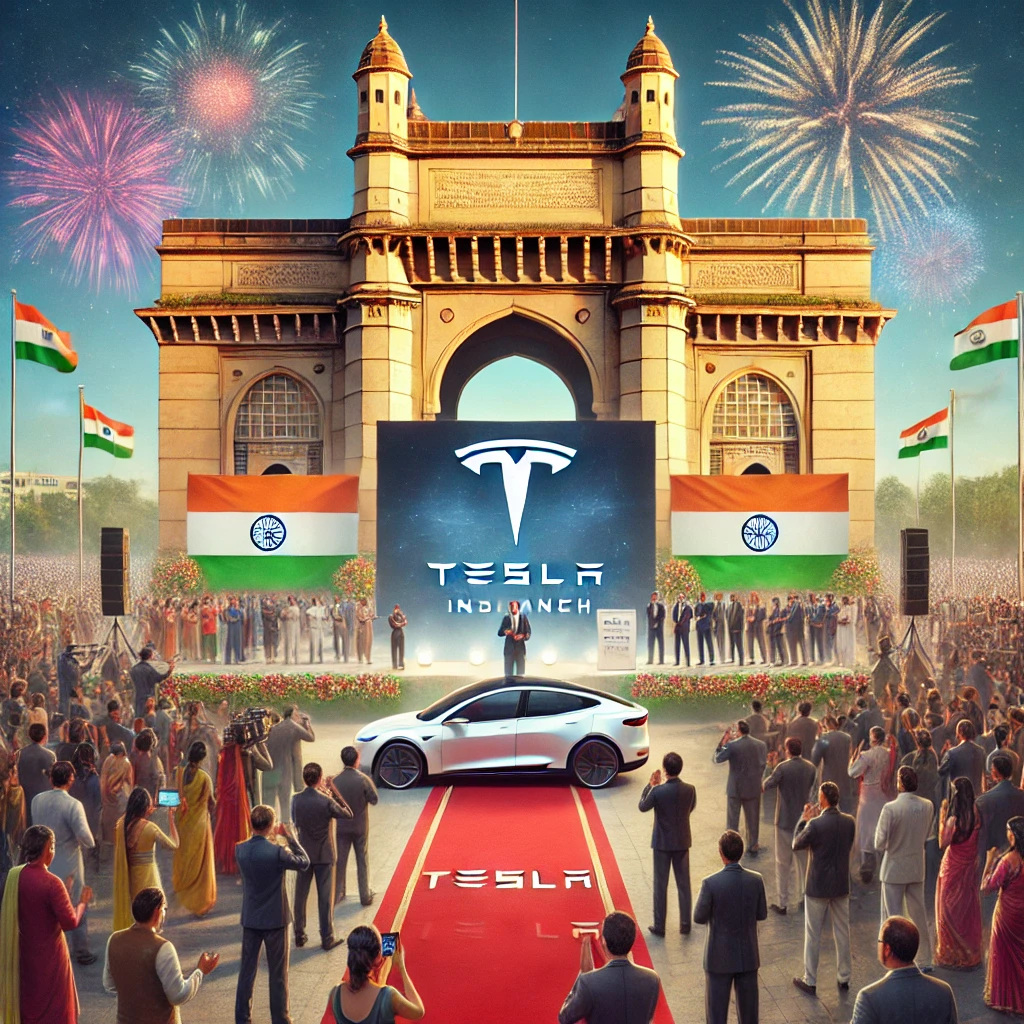Tesla, the pioneering electric vehicle (EV) manufacturer, has been eyeing the Indian market for several years. After multiple attempts and setbacks, Tesla is finally set to enter India, marking a significant milestone in the country’s burgeoning electric mobility landscape. This move is part of Tesla’s broader strategy to expand its global presence, particularly in emerging markets with high growth potential.
Background and Challenges
India, with its vast population and growing economy, presents both opportunities and challenges for Tesla. The country’s high import duties on electric vehicles have been a major hurdle for foreign automakers, including Tesla. However, recent policy changes and diplomatic efforts have paved the way for Tesla’s entry.
Tesla’s journey into India began with several false starts. The company initially planned to enter the market in 2020 but faced significant regulatory and tariff-related challenges. Despite these setbacks, Tesla persisted, recognizing India’s potential as a key market for electric vehicles.
Current Developments
As of early 2025, Tesla has made substantial progress toward establishing its presence in India. The company has secured showroom spaces in major cities like Mumbai and New Delhi, signaling its intent to launch retail operations soon. These showrooms will serve as the initial touchpoints for Indian consumers, offering them a glimpse into Tesla’s innovative products and technology.
Tesla is expected to start selling its vehicles in India within the next few months, with the Model Y likely to be its first offering. This model is anticipated to compete in the luxury EV segment, priced between ₹60-70 lakh. Additionally, the Model 3, priced around ₹35-40 lakh, could also be introduced, targeting the premium segment and competing with brands like Tata and Mahindra.
Challenges Ahead
Despite the excitement surrounding Tesla’s entry, several challenges remain:
- Import Duties: India imposes high import duties on electric vehicles, which can make Tesla’s cars expensive for local consumers. Although recent policies have reduced these duties for certain conditions, they remain a significant barrier.
- Charging Infrastructure: India lacks a robust charging infrastructure, which is crucial for widespread EV adoption. Tesla will need to invest in expanding its Supercharger network or collaborate with local charging providers.
- Competition: The Indian market is highly competitive, with established domestic players like Tata Motors and Mahindra already offering affordable electric vehicles. Tesla will need to balance its premium brand image with competitive pricing.
- Regulatory Framework: Navigating India’s complex regulatory landscape will be essential for Tesla’s success. This includes compliance with local sourcing norms and foreign investment rules.
Opportunities for Growth
Despite these challenges, Tesla’s entry into India offers numerous opportunities:
- Market Growth Potential: India’s EV market is poised for rapid growth, driven by government incentives and increasing consumer awareness about sustainable mobility.
- Innovation and Technology: Tesla’s cutting-edge technology and innovative products can drive consumer interest and push the boundaries of electric mobility in India.
- Supply Chain Development: Tesla’s presence could stimulate growth in India’s EV component supply chain, fostering innovation and job creation.
- Policy Influence: Tesla’s entry may prompt further policy adjustments from the Indian government to encourage EV adoption and support local manufacturers.
Tesla’s Global Strategy and Its Relevance to India
Tesla’s global strategy emphasizes strategic expansion into key markets, localized operations, and a customer-centric sales model. In India, this strategy will involve adapting to local conditions while maintaining Tesla’s premium brand image.
Impact on the Indian Automotive Industry
Tesla’s arrival is expected to disrupt the Indian automotive market in several ways:
- Pricing Strategies: Tesla’s presence could lead to more competitive pricing in the luxury EV segment, potentially forcing other manufacturers to adjust their strategies.
- Innovation and Competition: By introducing advanced EV technology, Tesla will increase competition and encourage innovation among domestic and international players.
- Policy Changes: Tesla’s entry may influence government policies aimed at promoting electric mobility and supporting local manufacturers.
Opportunities for Growth
Despite these challenges, Tesla’s entry into India offers numerous opportunities:
- Market Growth Potential: India’s EV market is poised for rapid growth, driven by government incentives and increasing consumer awareness about sustainable mobility.
- Innovation and Technology: Tesla’s cutting-edge technology and innovative products can drive consumer interest and push the boundaries of electric mobility in India.
- Supply Chain Development: Tesla’s presence could stimulate growth in India’s EV component supply chain, fostering innovation and job creation.
- Policy Influence: Tesla’s entry may prompt further policy adjustments from the Indian government to encourage EV adoption and support local manufacturers.

Tesla’s Global Strategy and Its Relevance to India
Tesla’s global strategy emphasizes strategic expansion into key markets, localized operations, and a customer-centric sales model. In India, this strategy will involve adapting to local conditions while maintaining Tesla’s premium brand image.
Impact on the Indian Automotive Industry
Tesla’s arrival is expected to disrupt the Indian automotive market in several ways:
- Pricing Strategies: Tesla’s presence could lead to more competitive pricing in the luxury EV segment, potentially forcing other manufacturers to adjust their strategies.
- Innovation and Competition: By introducing advanced EV technology, Tesla will increase competition and encourage innovation among domestic and international players.
- Policy Changes: Tesla’s entry may influence government policies aimed at promoting electric mobility and supporting local manufacturers.
Potential Partnerships and Collaborations
To navigate the Indian market effectively, Tesla might consider strategic partnerships with local companies. These collaborations could help Tesla:
- Enhance Local Sourcing: Partnering with Indian suppliers could reduce costs and comply with local sourcing requirements.
- Expand Charging Infrastructure: Collaborating with local charging providers could accelerate the development of India’s charging network.
- Improve Market Understanding: Local partners could provide valuable insights into consumer preferences and market dynamics.
Consumer Expectations and Preferences
Indian consumers are increasingly interested in sustainable mobility options. Tesla’s products, known for their innovative features and performance, are likely to appeal to this growing demographic. However, consumer expectations in India are diverse, with affordability and practicality being key considerations.
Role of Government Policies
Government policies play a crucial role in shaping India’s electric vehicle market. Initiatives like the Faster Adoption and Manufacturing of Electric Vehicles (FAME) scheme and state-specific incentives have encouraged EV adoption. Tesla’s entry may prompt further policy adjustments to support foreign investment and promote electric mobility.
Conclusion
Tesla’s entry into India marks a significant step in the country’s journey toward electric mobility. While challenges exist, the opportunities for growth and innovation are substantial. As Tesla navigates the complexities of the Indian market, its success will depend on its ability to adapt to local conditions while leveraging its global strengths.
In the coming years, Tesla’s impact on India’s automotive landscape will be closely watched. Whether Tesla can establish itself as a major player in this competitive market remains to be seen, but its presence is undoubtedly set to accelerate India’s shift toward sustainable transportation solutions.
Additional Perspectives
Tesla’s Impact on Indian Startups
Tesla’s presence in India could also influence the startup ecosystem, particularly in the electric vehicle and clean energy sectors. Indian startups have been actively working on EV-related technologies, and Tesla’s entry could provide them with opportunities for collaboration and growth.
Environmental Impact
The shift toward electric vehicles is crucial for reducing India’s carbon footprint. Tesla’s entry will contribute to this effort by offering environmentally friendly transportation options. However, the company will also need to address concerns related to battery recycling and sustainable manufacturing practices.
Conclusion
Tesla’s entry into India marks a significant step in the country’s journey toward electric mobility. While challenges exist, the opportunities for growth and innovation are substantial. As Tesla navigates the complexities of the Indian market, its success will depend on its ability to adapt to local conditions while leveraging its global strengths.
In the coming years, Tesla’s impact on India’s automotive landscape will be closely watched. Whether Tesla can establish itself as a major player in this competitive market remains to be seen, but its presence is undoubtedly set to accelerate India’s shift toward sustainable transportation solutions.
Citations:
- https://www.youtube.com/watch?v=gnfYZcEqYCs
- https://www.carlelo.com/news/tesla-model-y-may-debut-as-teslas-first-car-in-india
- https://www.businesstoday.in/technology/news/story/tesla-gears-up-for-india-launch-in-april-with-showrooms-planned-in-mumbai-and-delhi-report-465143-2025-02-19
- https://blog.disfold.com/tesla-global-market-strategy/d-europe-not-so-fast-elon-musk-electric-vehicles-autos/











